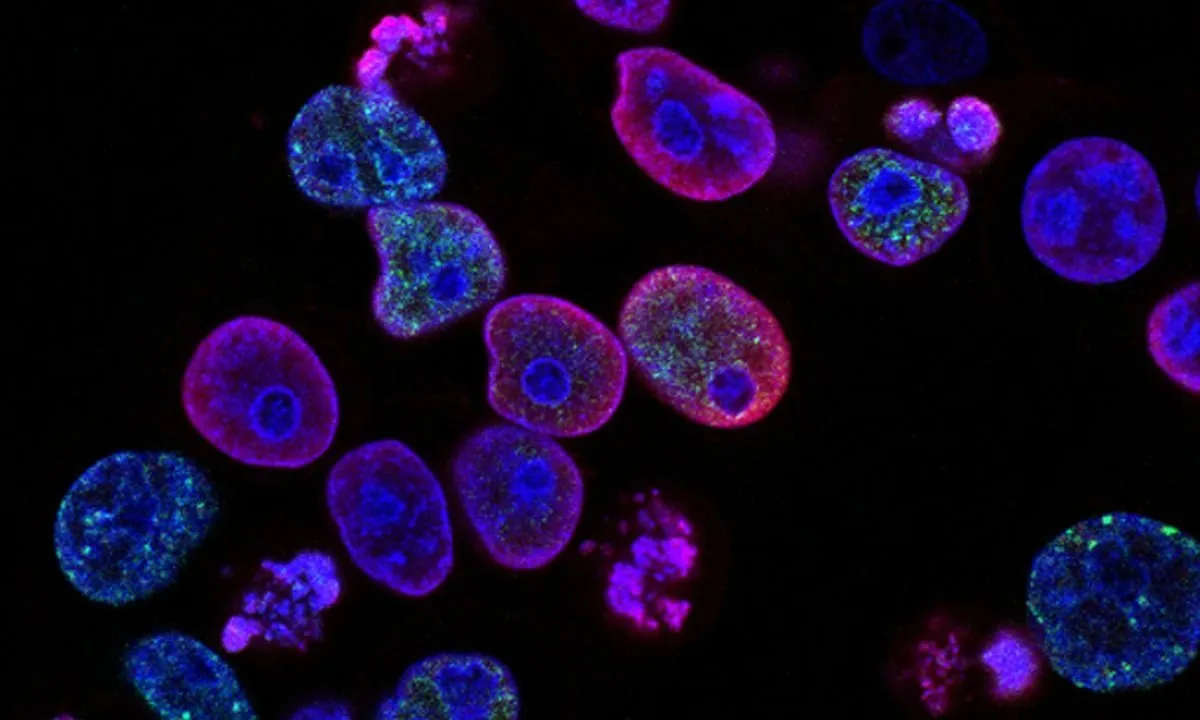
The Little Stuff: Energy Cells and Genetics 
Get a comprehensive overview of The Little Stuff: Energy, Cells, and Genetics ▼
ADVERTISEMENT
Course Feature
![]() Cost:
Cost:
Free
![]() Provider:
Provider:
Coursera
![]() Certificate:
Certificate:
Paid Certification
![]() Language:
Language:
English
![]() Start Date:
Start Date:
3rd Jul, 2023
Course Overview
❗The content presented here is sourced directly from Coursera platform. For comprehensive course details, including enrollment information, simply click on the 'Go to class' link on our website.
Updated in [March 06th, 2023]
This course, The Little Stuff: Energy Cells and Genetics, provides an overview of molecular biology. Students will learn about cell biology and how cells can become cancerous, the transfer of energy from the sun to fuel our bodies, the basics of genetics and inheritance, and genetic technologies. Additionally, the ethical and moral implications of several new genetic technologies will be discussed. By the end of the course, students will have a better understanding of molecular biology and the implications of genetic technologies.
[Applications]
Upon completion of this course, students will have a better understanding of the fundamentals of molecular biology and the implications of genetic technologies. They will be able to apply this knowledge to their everyday lives, such as understanding the basics of genetic testing and the ethical considerations of genetic engineering. Additionally, they will be able to apply this knowledge to their future studies and careers, such as in the fields of medicine, biotechnology, and genetics.
[Career Paths]
1. Biomedical Engineer: Biomedical engineers use engineering principles to design and develop medical equipment, such as artificial organs, prostheses, and medical imaging systems. They also work on developing new treatments and therapies for diseases. This field is growing rapidly due to the increasing demand for medical technology and the development of new treatments and therapies.
2. Genetic Counselor: Genetic counselors help individuals and families understand and manage their genetic risks. They provide information and support to individuals and families who are considering genetic testing or who have received a positive result from a genetic test. Genetic counselors also help to interpret genetic test results and provide advice on how to manage genetic risks.
3. Molecular Biologist: Molecular biologists study the structure and function of molecules, such as DNA and proteins, and how they interact with each other. They use a variety of techniques, such as gene sequencing and cloning, to study the structure and function of molecules. Molecular biologists are involved in the development of new treatments and therapies for diseases, as well as the development of new diagnostic tests.
4. Bioinformatician: Bioinformaticians use computer science and mathematics to analyze and interpret biological data. They develop algorithms and software to analyze large datasets, such as genomic data, and use this data to understand the structure and function of genes and proteins. Bioinformaticians are also involved in the development of new treatments and therapies for diseases.
[Education Paths]
1. Bachelor of Science in Molecular Biology: This degree program focuses on the study of the structure and function of molecules in living organisms. Students will learn about the fundamentals of molecular biology, including DNA, RNA, and protein synthesis, as well as the regulation of gene expression. They will also explore the application of molecular biology in biotechnology, medicine, and other fields. This degree is becoming increasingly popular as the field of molecular biology continues to grow and develop.
2. Master of Science in Genetics: This degree program focuses on the study of the structure and function of genes and their role in the development of organisms. Students will learn about the fundamentals of genetics, including the principles of inheritance, genetic engineering, and the ethical implications of genetic technologies. This degree is becoming increasingly popular as the field of genetics continues to grow and develop.
3. Doctor of Philosophy in Biochemistry: This degree program focuses on the study of the structure and function of molecules in living organisms. Students will learn about the fundamentals of biochemistry, including the structure and function of proteins, carbohydrates, lipids, and nucleic acids. They will also explore the application of biochemistry in medicine, biotechnology, and other fields. This degree is becoming increasingly popular as the field of biochemistry continues to grow and develop.
4. Doctor of Philosophy in Bioinformatics: This degree program focuses on the study of the structure and function of biological data. Students will learn about the fundamentals of bioinformatics, including the principles of data analysis, data mining, and machine learning. They will also explore the application of bioinformatics in medicine, biotechnology, and other fields. This degree is becoming increasingly popular as the field of bioinformatics continues to grow and develop.
Pros & Cons

Learned at ease with videos, readings, and quizzes

Informative and interesting

Comprehensive notes and fun quizzes

Excellent instructor

Reminds and reinforces information

Easytounderstand

Practices to make

NY Times article requires subscription

Peer graded assignments difficult to get marked

No one from Coursera to contact if problem arises
Course Provider

Provider Coursera's Stats at AZClass
The Little Stuff: Energy Cells and Genetics is an online course that explores small aspects of biology. It covers topics such as cell biology, energy transfer, genetics, and heredity. It also discusses the ethical and moral implications of genetic technology. This course is designed to help learners understand the fundamentals of molecular biology and their impact on our lives. Studying molecular biology is essential for anyone interested in the life sciences. It lays the foundation for understanding how cells work, how energy is transferred, and how heredity and heredity play a role in our lives. It also helps learners understand the implications of genetic technologies and how to use them responsibly.
Discussion and Reviews
0.0 (Based on 0 reviews)
Explore Similar Online Courses

Birth of a drug

Business Analysis Foundations

Python for Informatics: Exploring Information

Social Network Analysis

Introduction to Systematic Review and Meta-Analysis

The Analytics Edge

DCO042 - Python For Informatics

Causal Diagrams: Draw Your Assumptions Before Your Conclusions

Whole genome sequencing of bacterial genomes - tools and applications

Biology 102: Basic Genetics

Introduction to Genetics: Certificate Program


Start your review of The Little Stuff: Energy Cells and Genetics